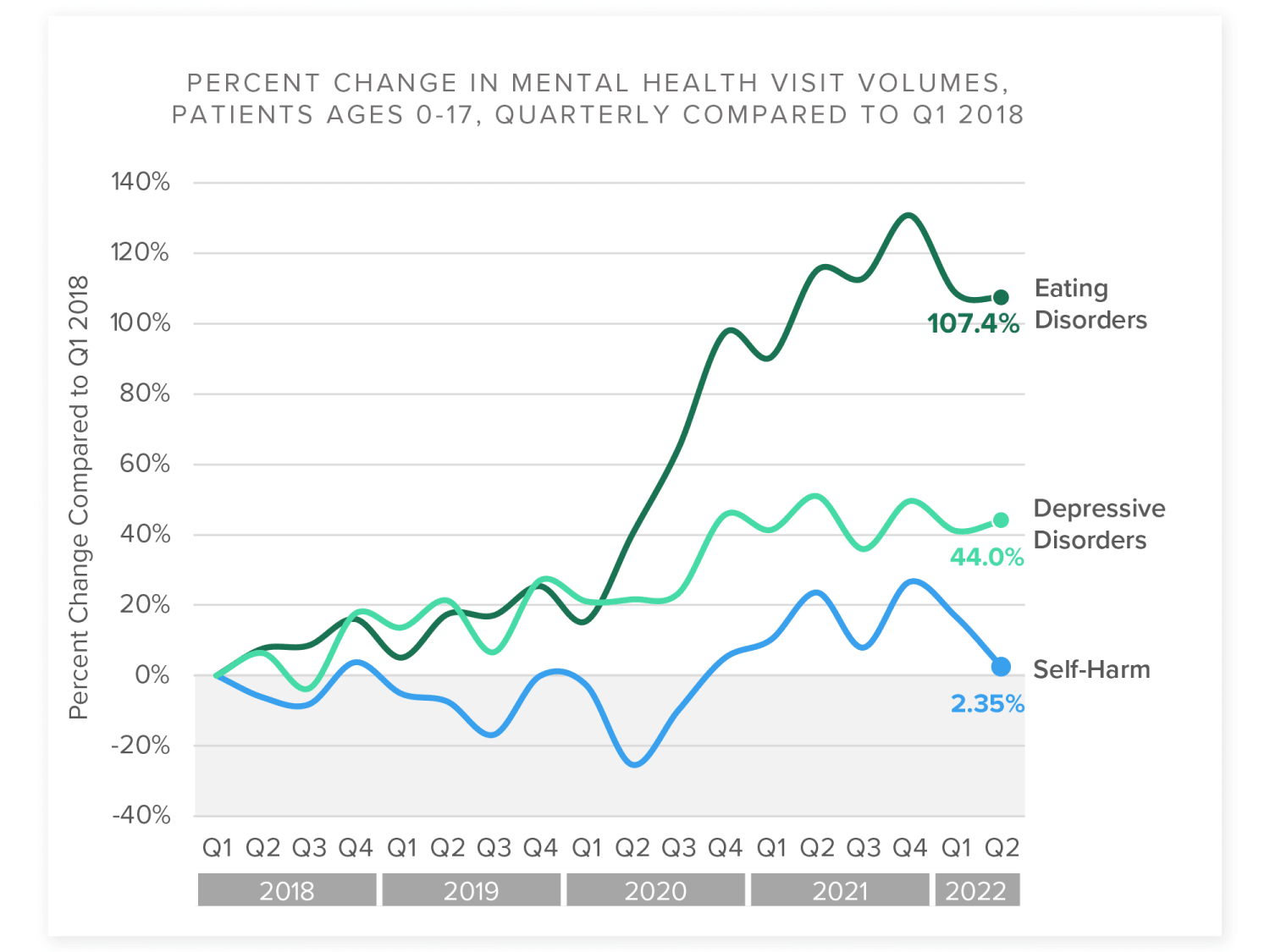Eating Disorders
Eating disorders, characterized by severe disturbances in eating behavior and body image, pose a significant challenge to individuals' physical and mental well-being. Traditional treatment approaches, such as cognitive-behavioral therapy, have shown promise, but a notable subset of individuals with eating disorders remains resistant to these methods. In recent years, psychedelic therapy has emerged as an unconventional yet promising avenue for addressing these complex conditions. This article explores the application of psychedelic therapy for eating disorders, delving into treatment methods and identifying those who may benefit most from this innovative approach.
 Eating disorders increased dramatically during pandemic lockdowns
Eating disorders increased dramatically during pandemic lockdowns
Treatment Methods
Psychedelic therapy for eating disorders entails a multifaceted and transformative treatment approach.
Individuals interested in psychedelic therapy undergo rigorous screening and assessment to determine their suitability for the treatment. This process typically involves medical, psychological, and psychiatric evaluations to ensure the safety and well-being of participants.
Before the psychedelic experience, individuals engage in preparatory sessions with their therapists. During these sessions, a trusting therapeutic relationship is established, intentions for the experience are defined, and any concerns or anxieties are addressed. This phase is crucial for setting the stage for a constructive and therapeutic journey.
The core of psychedelic therapy is the administration of a carefully dosed psychedelic substance, such as psilocybin or MDMA, in a controlled and supportive setting. The psychedelic experience often leads to altered states of consciousness characterized by heightened introspection, emotional release, and vivid sensory perceptions.
Highly trained therapists play a central role during the psychedelic session. They offer emotional support, ensure physical safety, and guide individuals through their journeys by facilitating self-exploration and reflection. Therapists employ various therapeutic techniques to help individuals navigate challenging emotions and experiences.
After the psychedelic experience, individuals participate in integration sessions. These sessions are integral to the therapeutic process, allowing individuals to make sense of their insights and emotions and apply them to their daily lives. Integration sessions extend beyond immediate post-session support, with therapists providing ongoing guidance to foster sustained healing and growth.
Who Benefits Most from Psychedelic Therapy for Eating Disorders
Psychedelic therapy for eating disorders offers hope and healing to a range of individuals affected by these conditions. Some groups that may find particular benefit include:
Treatment-Resistant Cases: Individuals who have not responded to conventional eating disorder treatments, such as psychotherapy or medication, may discover breakthroughs and lasting improvements through psychedelic therapy.
Body Image Strugglers: Those grappling with distorted body image and self-esteem issues can benefit from the profound shifts in self-perception and acceptance often catalyzed by psychedelic experiences.
Chronic Cases: Individuals who have struggled with eating disorders for an extended period may find psychedelic therapy to be a powerful tool for breaking free from long standing destructive patterns.
Supportive Social Networks: The presence of a supportive and understanding social network, including family members, friends, and partners, can enhance the effectiveness of psychedelic therapy for eating disorders.
The emerging field of psychedelic therapy for eating disorders presents a compelling avenue for healing and recovery. While ongoing research is vital to solidify its effectiveness and safety, early indications and personal accounts point to its potential to provide a unique and transformative path to those grappling with these complex conditions. By fostering introspection, self-awareness, and emotional healing within a structured therapeutic framework, psychedelic therapy offers renewed hope and the possibility of profound transformation for individuals who have not found relief through traditional treatments. It emphasizes a holistic approach to addressing eating disorders, tackling both the surface symptoms and the underlying psychological and emotional factors that contribute to these conditions.